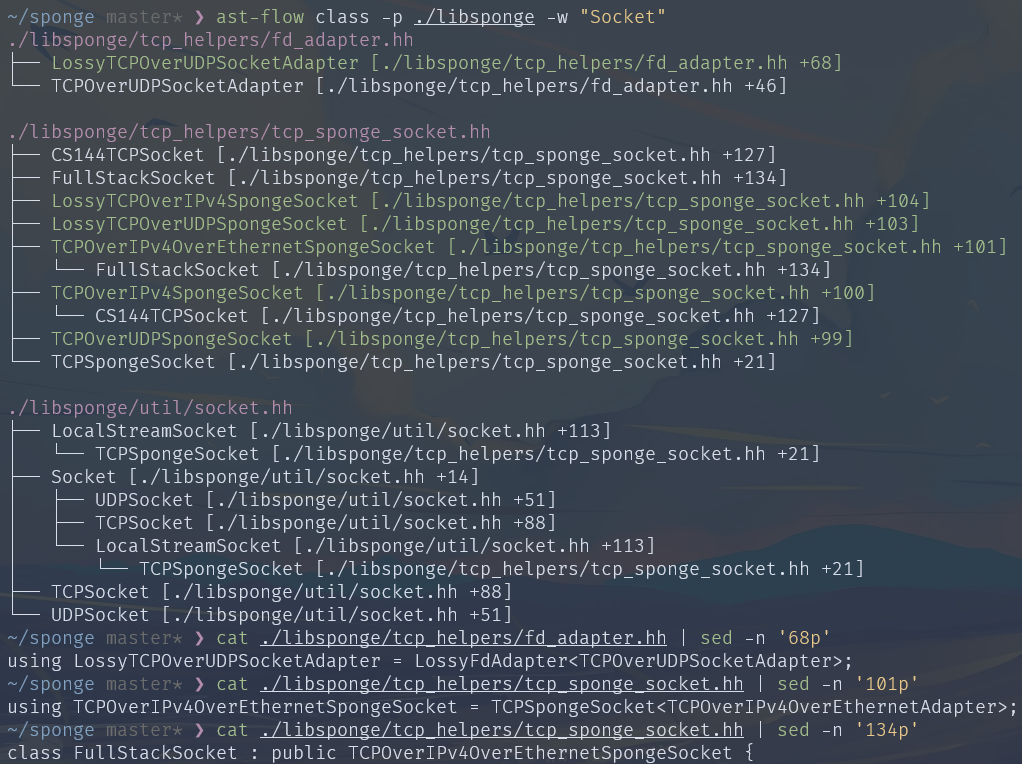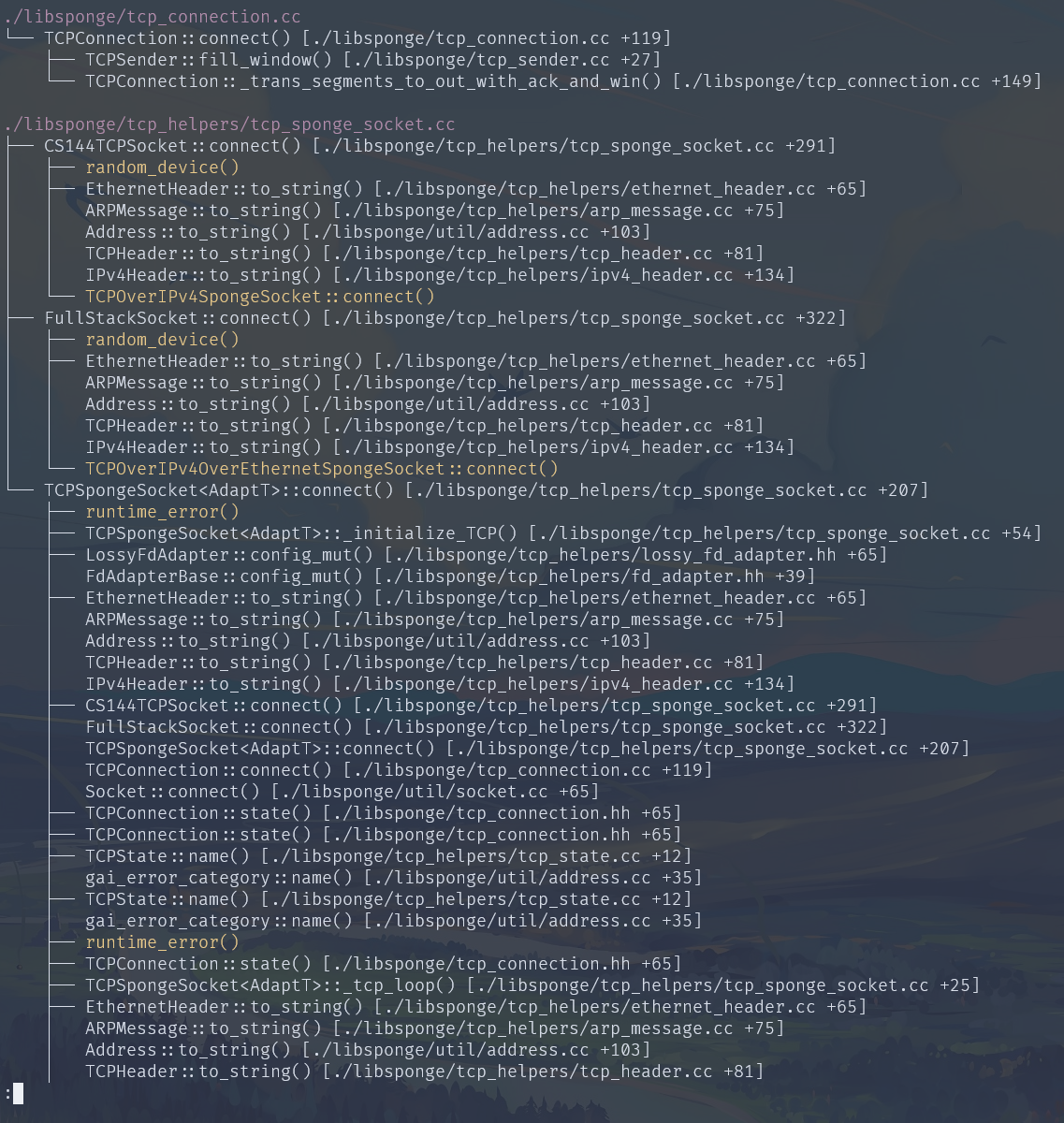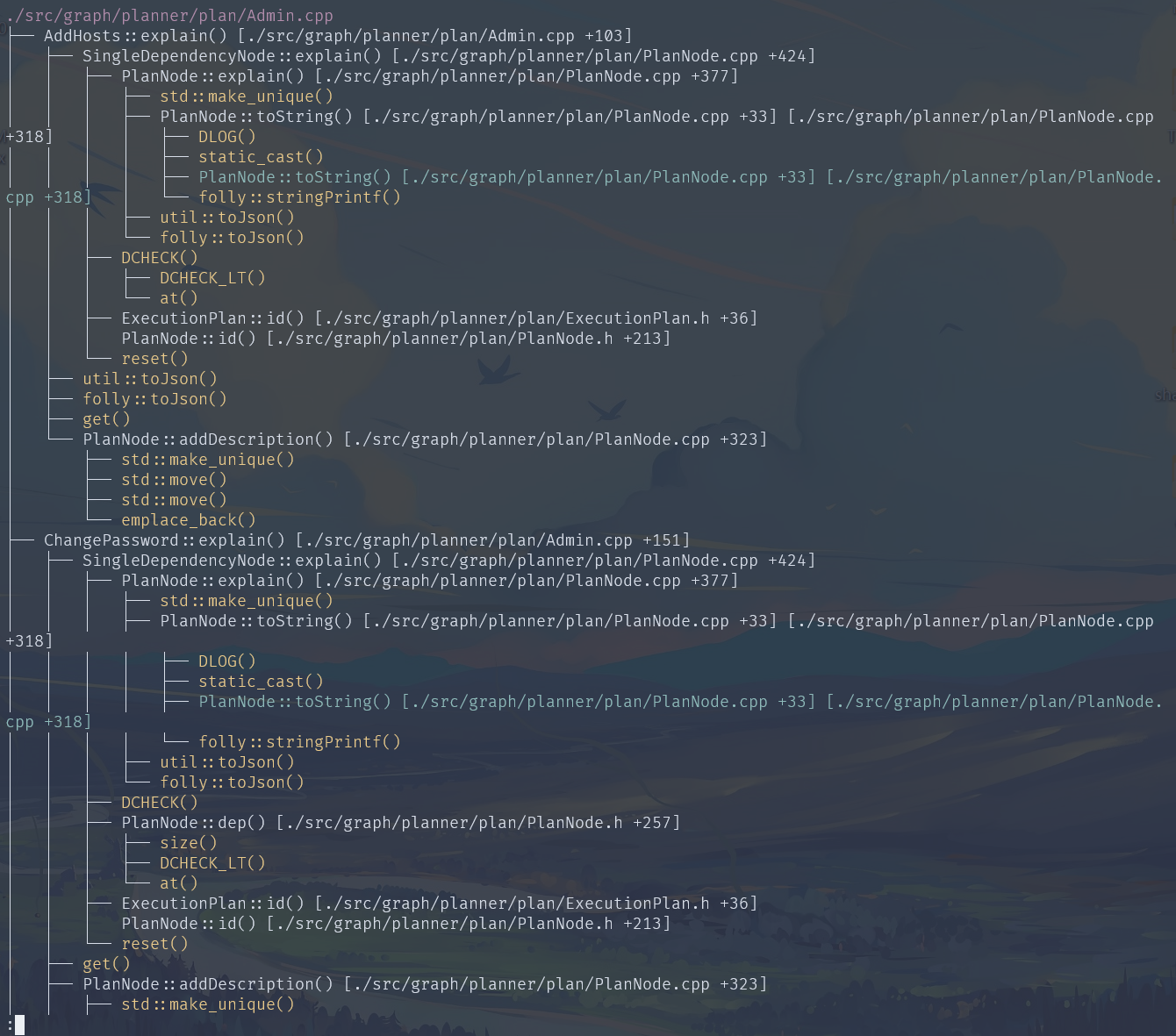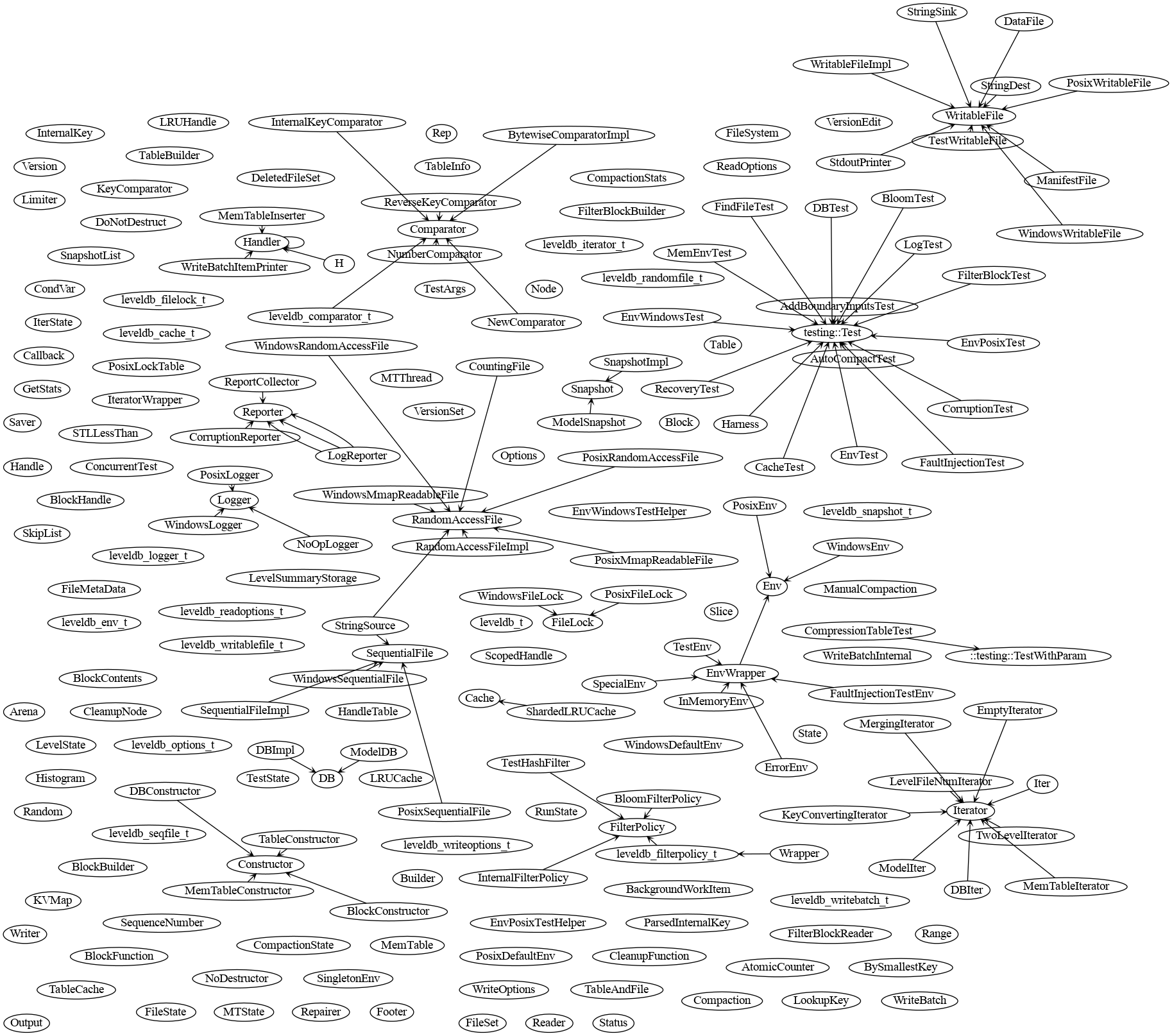ast-flow is a CLI tool written in Rust for static analysis of C/C++ codebases, to help read the source code. It provides class hierarchy graph and function call graph to visualize the code.
-
Show the hierarchy graph of all classes containing
Socketast-flow class -p ./libsponge -w "Socket"Green denotes name alias.
-
Show the call graph of all functions containing
connect, limit the depth to less than or equal to 1ast-flow call -p ./libsponge -w "connect" -d 1Yellow denotes functions with unknown definition locations (most are library calls).
-
Show the call graph of all functions related to planner in nebula
ast-flow call -p ./src/graph/planner/planCyan denotes recursive calls.
-
Visualize the hierarchy graph of all classes in LevelDB using Graphviz
ast-flow class --dot --ignore-macro LEVELDB_EXPORT | fdp -Tpng -o class.png
ast-flow employes Tree-sitter to build ASTs for each file in the specified directory. It then traverses each AST to extract all class and function definitions, and finally gathers relationship information from base class declarations and function call expressions.
ast-flow is faster and more accurate than regular expression-based methods, since it understands complex templates and name aliases.
$ cargo install ast-flow --path .
$ ast-flow --help
Usage: ast-flow <COMMAND>
Commands:
call Generate function call graph
class Generate class hierarchy graph
help Print this message or the help of the given subcommand(s)
Options:
-h, --help Print help
-V, --version Print version
ast-flow call --help
Generate function call graph
$ ast-flow call --help
Generate function call graph
Usage: ast-flow call [OPTIONS]
Options:
-p, --path <PATH> Specify the path to the file or directory to analyze [default: ./]
--exclude-path <EXCLUDE_GLOBSET> Specify a path to exclude (this option can be provided multiple times)
-w, --word <PATTERNS> Show only entries matching the given regex pattern (this option can be provided multiple times)
--color Whether to use color when displaying
-d, --depth <DEPTH> Control the depth of the displayed tree [default: -1]
--no-default-exclude-path Whether to exclude some useless paths (e.g., test/, benchmark/)
--text Display in text mode
--dot Display in dot mode
--succinct Whether to display in succinct mode (only show root entries)
-r, --reverse Display in reverse direction
--ignore-unknown Whether to ignore unknown entries
--ignore-macro <IGNORE_MACROS> Ignore a macro that confuses tree-sitter (this option can be provided multiple times)
--sort-children Whether to sort child nodes by name
-h, --help Print help- Tree-sitter lacks type information. When there are duplicate symbols, they cannot be distinguished. In such cases, ast-flow just stupidly lists all possibilities
- Certainly, we can leverage more powerful weapons, e.g., LSP and clang AST, but I opt to keep this tool simple and fast, yet sufficient for code browsing
- Tree-sitter doesn't understand C macros, which may cause confusion
- You can try the
--ignore-macrooption to ignore an annoying macro (e.g., MAYBE_UNUSED)
- You can try the
- In theory, ast-flow can analyze any language, but currently, it only supports C/C++. To extend support to other languages, you simply need to implement the
analyzertrait



